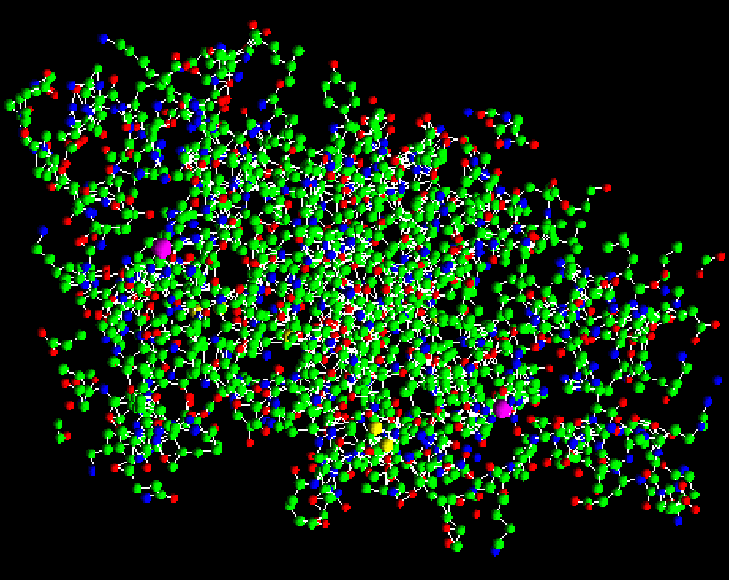| Michael Holst | ||
| https://ccom.ucsd.edu/~mholst/ |
Distinguished Professor of Mathematics and Physics UC San Diego |
|
|
SuperOxideDismutase

The SOD (SuperOxideDismutase) enzyme is an antiradical or antioxident, meaning that it moves around the body binding to and then deactivating free radicals in the body, preventing them from causing cancer or other cell damage in the body. It is believed that antiradicals such as SOD can help prevent cancer, heart disease, and a host of other diseases, and perhaps even delay the aging process. The electrostatic steering effect of the SOD enzyme enables it to attract, bind to, and deactivate free radicals in the human body. The negatively charged surface surrounding the postively charged binding sites has the effect of ``steering'' the radical into the site. In the March 4, 1993 issue of the New York times, it was announced that researchers at MIT had discovered that the gene responsible for generating the antiradical SOD in the human body is defective in patients with amytrophic lateral sclerosis (ALS), also known as Lou Gehrig's disease. The discovery was deemed so important that the MIT report was accepted for publication by the journal Nature within 36 hours of submission. Using models such as the nonlinear Poisson-Boltmann model to gain a better understanding of the function of antiradical enzymes such as SOD, it is hoped that new drug therapies will be developed for diseases such as ALS based on synthetic antiradical agents. |
